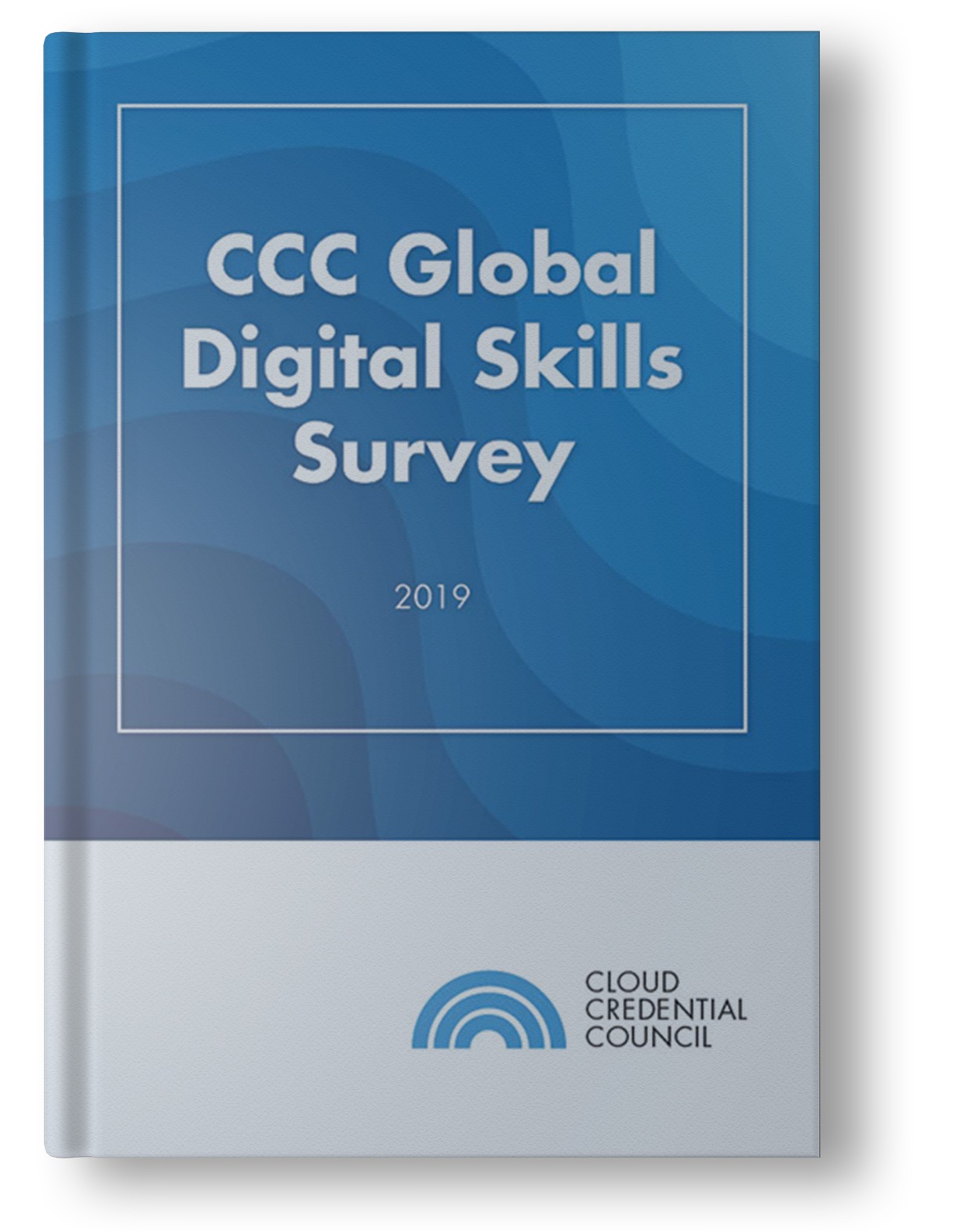The CCC Global Digital Skills Survey 2019 Report Is Out

Mark O'Loughlin

In today’s world, large, medium, and small organizations all rely on some form of IT and technology to meet the goals of their business and the needs of their customers. Strategic choices are made and plans executed daily. The CCC set out to capture an initial view of the digital landscape from those who are right at the coal-face of all things digital — IT professionals and organizations, across the globe. The goal of the research is to understand how ready the IT workforce is for working in the digital era. The results of the research have now been published in the CCC Global Digital Skills Survey 2019 Report.
The report identifies three critical and eight key findings. The analysis covers cultural, individual, and organizational readiness for the changes which are being brought about through the impact of digital.
The CCC Global Digital Skills Survey 2019 Report
Key findings
The report identifies three critical and eight key findings. The analysis covers cultural, individual, and organizational readiness for the changes which are being brought about through the impact of digital.
Organizations and IT professionals don’t know what they don’t know
Ask ten people what digital is and you will receive back ten different answers. It is very clear from our overall research that many organizations across the globe are unaware of the significant gap they have in understanding what digital really is, what digital can deliver, and how to achieve success from digital strategies and the adoption of digital technologies.
Organizations require staff to have the ability to acquire skills quickly as opposed to having skills
In our discussions with the C-suite, HR departments, organizational leaders, recruitment specialists and analysts, the ability to acquire skills quickly is a common sought-after trait. The reason is simple. The current wave of IT and Digital technologies are changing at an unprecedented rate and will continue to change for the foreseeable future. Therefore, the ability for an individual to learn and acquire new skills and to expand their digital capabilities as digital technologies change and are introduced is considered more important than what that individual may have learned to do in the past or what knowledge they had acquired to-date.
The sequence for digital success is people before technology — People First, Technology Second
Over the last few years, many organizations have pursued a ‘Cloud First’ strategy. Many organizations continue to do so. Many organizations have also embarked on a ‘Digital Transformation’ program primarily focused on adopting the latest in digital technologies in order to find a competitive advantage, deliver value to customers and to find further cost savings and efficiencies.
However, a large number of these strategies and endeavors have focused more heavily on technology and less on the people aspect. New technologies, including all things of a digital nature, will lead to new levels of task automation. This current wave of digital disruption, digital transformation, and digital optimization will see many current manual tasks becoming automated. It is expected that some current roles and jobs will become displaced or even obsolete. However, that does not mean the individual has to become displaced or obsolete. The opportunity today is for individuals and organizations to upskill, re-skill and re-train for the new jobs and roles which develop as a result of all this digital change. The power should be with the people, if the people are (1) willing, (2) capable and driven to change, and (3) can learn and adapt to today’s changing work-place.
Acknowledgments
I would like to express my deepest appreciation to all those who provided the CCC the possibility to complete this report, our co-authors: Siddharth Pareek, Bryan O’Connor, Gary Duffield, and Neasa Glynn.
Furthermore, I would also like to acknowledge with much appreciation the crucial role of this year’s sponsors: Consuldesk, Cranford Group, DASA, Digicomp, GKK Consultants, Glenfis, Global Knowledge, ITpreneurs, itSMF UK, KandF, STS, Torque IT, UnistarPRO, Valnaos, and Yayati.
Last but not least, many thanks go to the participants of the survey. Without them, this would not have been possible.
We trust that this report helps you, the reader, IT professionals, and organizations succeed with all your digital endeavors.
Download the report

About the Author
Mark O'Loughlin is the Managing Director of the CCC. Mark is internationally recognized as a global thought leader and published author in digital IT, cloud computing, DevOps, cloud service management, and IT Service Management.
Never miss an interesting article
Get our latest news, tutorials, guides, tips & deals delivered to your inbox.
Keep learning



